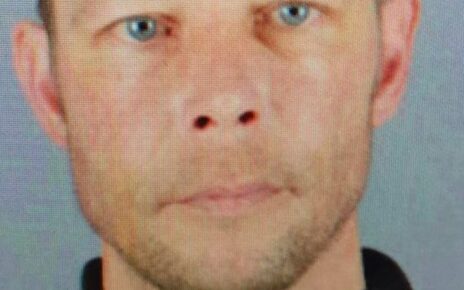Save articles for later
Add articles to your saved list and come back to them any time.
Professor Don Campbell is one of the rare people who have never caught COVID-19, and he can’t help but wonder if it has something to do with a unique daily routine he has performed since May 2020.
In the morning and evening, about the time that he cleans his teeth, Campbell sprays a solution containing the drug heparin into his nose. He also carries a bottle with him, and applies an extra pump if he’s venturing into a shopping centre, hopping on public transport or going to other crowded spaces.
Professor Don Campbell has high hopes for heparin spray as a virus preventer.Credit: Paul Jeffers
“I haven’t had COVID. Since I have been using the spray, I haven’t had a cold, I haven’t had RSV or the flu,” said the general physician, who is the director of Northern Health’s Hospital Without Walls program. “I’m a NOVID.”
By the end of next year, thanks to hundreds of Victorian families, it is hoped that Campbell and a formidable team of scientists, doctors and pharmacists will know whether heparin, widely used as an anticoagulant, can indeed help prevent people from catching COVID-19.
Later, they want to test if it can reduce instances of long COVID.
In its traditional use, heparin is injected to help people avoid heart attacks, strokes and blood clots. But Campbell said when used via a spray, it would not be absorbed by the body or act as a blood thinner. Instead, it is hoped it could stop people catching or spreading COVID.
The theory – which came to Campbell when he was doing the ironing one day in the early months of the pandemic – is that heparin spray might coat the coronavirus’ protein spike, which is key to COVID-19’s infectiousness, and stop it infecting humans.
Laboratory testing using cells, done by scientists at Melbourne’s Doherty Institute, has since shown promising signs that the heparin theory has potential to translate to real-world results.
Professor Paul Monagle, who has been involved in the project since its early days, said if researchers can prove the heparin spray works to reduce COVID spread, it is highly likely it will work on other viruses.
“That might well have implications for the next [new] virus that comes along, or even just our routine cold and flu seasons,” said Monagle, a leading haematologist at the Murdoch Children’s Research Institute.
“If it works, having an option to give you protection prior to getting on a plane or train or into a crowded space like a football game … would clearly be hugely advantageous.”
The big hurdle the team now faces is getting enough Victorians to sign up to the clinical trial. It requires a person who is positive for COVID-19 and at least one of their family members to use the heparin spray or a placebo saline solution.
About 400 households are needed for the project, and they need to alert researchers within 72 hours of a positive test.
The recruitment process has been challenging, partly because many people no longer test for the virus even if they have symptoms.
Monagle said that in May 2020, the group first applied for funding through the Medical Research Future Fund – whose application assessment process has been scrutinised in an investigation by this masthead – but it was unsuccessful, delaying the project to a point in the pandemic when it was much harder to recruit people.
“Our funding eventually came from the Victorian government, which we are very grateful for, but that put a two-year delay to getting the project up and running.”
The Andrews government committed $4.2 million to the trial, which will be led by the Northern Hospital and Murdoch Children’s Research Institute and involves the University of Melbourne, Monash University and Oxford University.
Infectious diseases expert Paul Griffin believes heparin has shown promise in warding off COVID.Credit: Justin McManus
Associate Professor Paul Griffin, a vaccine expert who has been the principal investigator for about 125 trials, believes the concept is promising and said lots of data already existed to show that heparin was safe, including when taken intranasally. It would also be cheap and easy to produce, he said.
Melbourne GP Dr Jane Crowe, who is involved in recruiting patients for the trial, said if the nasal spray could be proven to help protect people from COVID-19, it could be a huge step forward for people with serious health conditions who remain vulnerable to getting severely ill or dying from COVID-19 despite being vaccinated.
“Their quality of life has suffered, there are family tensions. They’re not going out to social events,” she said.
“Vaccines have been great to reduce severe infection and hospitalisations, but you can still get infected … If the spray can protect people from becoming infected in the first place, and possibly other airborne viruses, it could be a game-changer.”
People can participate in the trial if they live in Melbourne, are aged over five and have a household member who is also willing to take part. People who have a heparin-induced allergy or have had recent severe nosebleeds are ineligible.
People who are eligible to participate can contact [email protected] or text or call 0481 983 452.
The Morning Edition newsletter is our guide to the day’s most important and interesting stories, analysis and insights. Sign up here.
Most Viewed in National
From our partners
Source: Read Full Article



